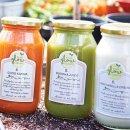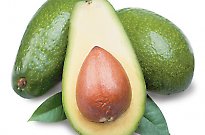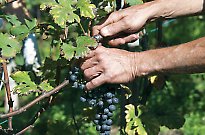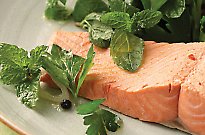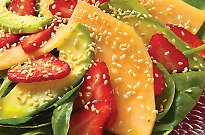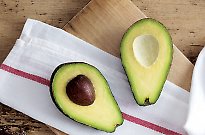
7 reasons why a Mediterranean diet is one of the healthiest diets in the world
7 reasons why a Mediterranean diet is one of the healthiest diets in the world

1. Rich in quality fats
When we think of quality fats and the Mediterranean diet, it’s hard not to think immediately of olive oil. This beautiful oil is abundantly rich in monounsaturated fats and a rich source of vitamin E. The Mediterranean diet has never been shy with its use of oil, unlike the fearful community of the ’80s and early ’90s here in Australia. Olive oil is respected and appreciated in Mediterranean culture, and as a result the quality is imperative. It is not unusual, for instance, for families within Italy to press their own or to source locally fresh-pressed olive oil from neighbours. The Mediterranean diet is also rich in nuts and seeds. Think calcium-rich tahini in Turkey and walnuts and almonds used in baking in Greece and Italy. These nuts and seeds provide abundant sources of anti-inflammatory polyunsaturated fats.
2. High in seafood
From Italy to Greece through to Turkey one will find an array of seafood options on offer. The Mediterranean diet is jam-packed with seafood, often served abundantly on its coastlines. Unlike our salmon obsession here in Australia, the Mediterranean diet is more diverse in seafood and often more plentiful in smaller, oily fish. Think sardines (my personal favourite ‘superfood’ if ever there was one) rich in omega fatty acids, zinc and calcium, alongside calamari and anchovies. This consistent stream of seafood provides anti-inflammatory fats to help ward off cardiovascular disease and keep the mind super sharp.
3. High in spices, fresh herbs & greens
Most dishes in the Mediterranean diet contain a mix of fresh herbs and spices. Fresh herbs are used in such a plentiful manner, often in the way we would use leafy greens here in Australia. Moroccan and Turkish dishes are laced with multiple spices such as cumin, turmeric, cinnamon, sumac and so on, rendering them potently rich in antioxidants. Fresh herbs and spices are one of the most powerful medicinal foods we can consume, providing a complexity of free radical scavenging antioxidants. Lastly, let’s not forget kale. Kale was sautéed with garlic and olive oil in the Mediterranean diet long before it was added to smoothies in hipster cafes.
4. Quality dairy products
Diary products throughout the Mediterranean are often sourced from goat’s and sheep’s milk, as these animals are more suitable to the landscape. The milk products of sheep and goat are higher in calcium than cow’s milk and easier to digest, causing fewer digestive issues. With the gut being the ‘seat of all health’ it can be seen how consuming less inflammatory in nature dairy products is beneficial.
5. Diversity of grains & legumes
The cliché Mediterranean diet denotes lots of pasta and cous cous. In reality, the diet is rich in a variety of grains and prebiotic-rich legumes. Ancient grains are used readily, such as farrow and bulgar wheat for tabouli and other popular salads. Spelt and kumut are heavily used in Italy along with barley. Buckwheat is also used throughout parts of Italy. This diversity of grains means less of a day-to-day intake of refined wheat and gluten-heavy processed breads dominant in the Australian culture.
6. Quality ingredients & less processed foods
Probably the most important point to make is that the Mediterranean diet is filled with quality ingredients. By this I mean produce is more often than not sourced locally, home grown and therefore grown in rich, mineral abundant soil. It only takes a trip to these countries to taste their food to experience the difference in colour and taste of a tomato or an eggplant. Meals are often less fussy and contain fewer ingredients, yet the quality of the ingredients shines through, and often showcases the seasonal produce. Eating in this way means there is less overall consumption of processed foods and convenience food. There is an inherent appreciation for real food that drives a demand for quality, and as a result creates a culture less dependent on a nutritionally stripped fast food.
7. Time out & siesta
The Mediterranean culture has down time covered. True health encompasses mind, body and soul. When an Italian takes time in the afternoon after lunch to just lay down and rest, their body can unwind and repair. Additionally, it is more common in the Mediterranean culture to sit with family and friends and enjoy food over a period of time, eating slowly and being present. We can try and replicate a Mediterranean diet from a food perspective, but without the right mindset around guilt free ‘time out’, we will never replicate the same true results.
NEXT: Find a collection of delicious Mediterranean inspired dishes in the June edition of nourish magazine.


